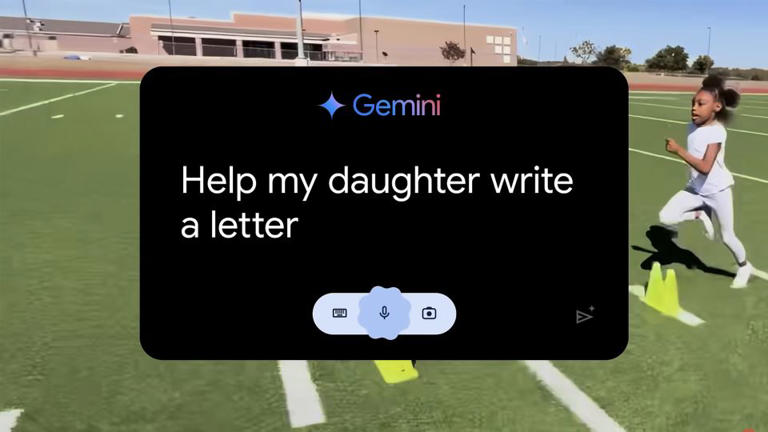
Google recently pulled their AI ad for the Olympics following significant backlash—and good riddance! The ad, titled “Dear Sydney,” featured a father using Google’s Gemini AI to write a letter from his daughter to her sports idol, American Olympic hurdler Sydney McLaughlin-Levrone. Critics argued the ad promoted the idea that parents should encourage their children to rely on AI for personal expression instead of fostering their own creativity and authentic voice.
Google gets “Crush!”ed
The controversy surrounding Google’s ad recalls similar hot water Apple found itself in earlier this year. Their ad, titled “Crush!,” showed various creative tools like cameras, musical instruments, and art supplies being crushed by a hydraulic press, ultimately revealing the new iPad Pro. The intent was to highlight the device’s ability to replace numerous traditional creative tools. Instead, the ad generated significant backlash from the creative community and the general public. How could Apple claim to champion creativity while simultaneously showcasing its destruction?
In the end, Apple apologized for the ad. By contrast, Google doubled down on its ad for a week. A spokesperson claimed AI wasn’t a replacement for human creativity, but instead served as a useful starting point. They finally pulled the ad. Apparently, they gave up trying to make themselves believe their own … ahem, explanation.
Deja Vu All Over Again
This isn’t the first time Google has stumbled over its technology:
- In the 2024 I/O keynote video, a photographer turns to Google’s Gemini AI to troubleshoot an issue with his film camera. The AI, however, provides incorrect advice by suggesting that he should open the back of the camera and gently remove the film. This action, especially if done in a lit environment, would expose the film to light, ruining the film roll. This significant error led to widespread criticism and raised concerns about the reliability of AI tools in practical scenarios.
- When Google introduced its Duplex assistant, the company faced significant criticism for the tech’s ability to mimic human speech convincingly. Critics were concerned about the ethical implications of a machine that could deceive people into thinking they were speaking with a human.
Google Assistant making calls pretending to be human not only without disclosing that it's a bot, but adding "ummm" and "aaah" to deceive the human on the other end with the room cheering it… horrifying. Silicon Valley is ethically lost, rudderless and has not learned a thing.
— zeynep tufekci (@zeynep) May 9, 2018
So what does Google’s terrible AI ad confirm about Google?
Google’s brand centers around its mission to “organize the world’s information and make it universally accessible and useful.” The overarching message is one of empowerment through technology. However, Google’s ad suggests a superficial grasp of what this actually means. Instead of empowering its users, Google is erasing what makes them human. Somehow, no warning signs flashed in the minds of all the supposedly smart people at Google. Perhaps all the high-paid executives silently wish technology could take away what they consider to be drudgery in life: spending time on authentic human interactions.
What does the ad confirm? That Google is a company that prioritizes the demonstration of technological advancements over ensuring the real-world applicability, accuracy, and ethical implications of their products. It’s a revealing, disturbing, and sad glimpse into the company’s ethos.
Jayson Adams is a technology entrepreneur, artist, and the award-winning and best-selling author of two science fiction thrillers, Ares and Infernum. You can see more at www.jaysonadams.com.